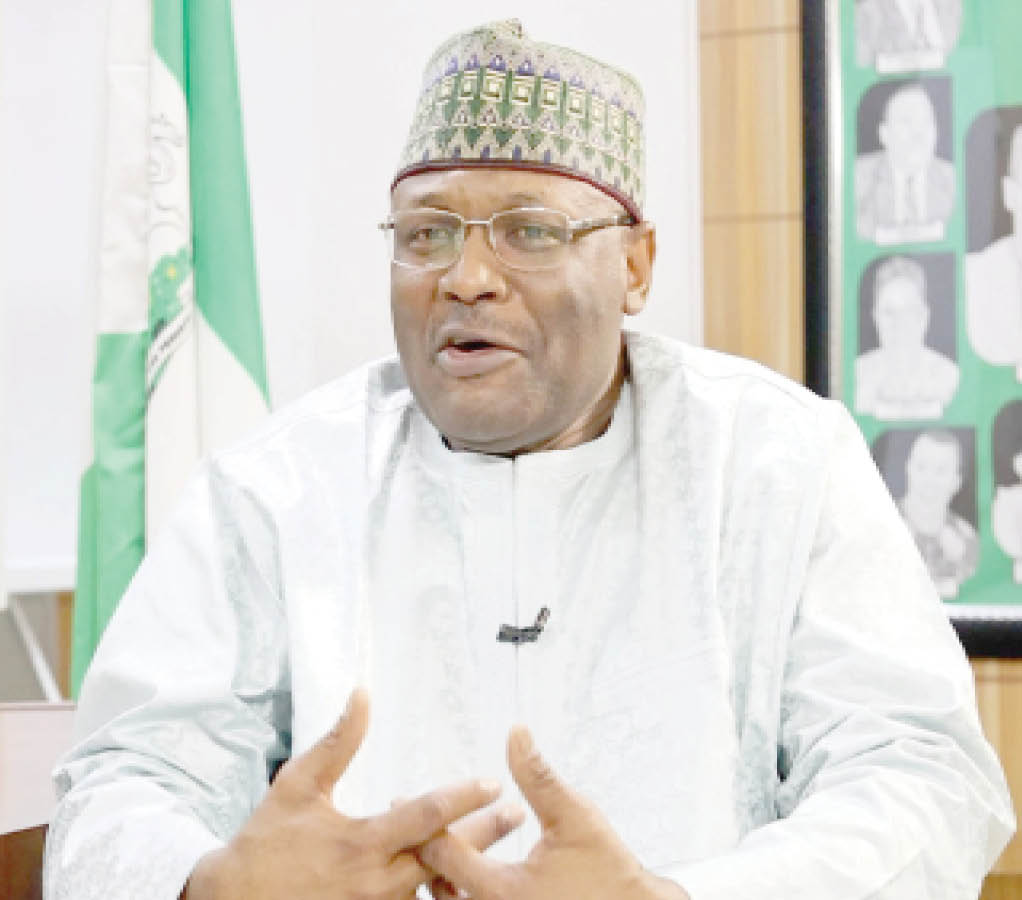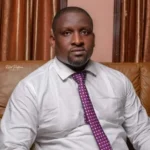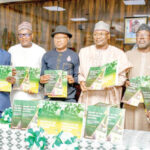The Independent National Electoral Commission (INEC) had in different times said that the smooth conduct of the 2023 general elections would be hampered by multi-dimensional challenges, including flooding, insecurity, court cases and attacks on its facilities and members of staff.
The commission, however, seems to be more concerned with the array of ongoing and expected litigations that may affect the elections.
The INEC chairman, Professor Mahmood Yakubu, lamented that there were over 600 court cases related to the outcome of primaries, which the commission had been joined.
This has raised the fear that for the commission to contend with such barrage of litigations and at the same time engage in preparations, the elections will be a hectic task.
- Nigeria re-elected into global aviation organisation board
- Buhari orders pay rise for judicial officers
Yakubu had, at the inauguration of the Electoral Logistics Committee (ELoC) at the INEC headquarters in Abuja, said the court cases by political parties were affecting its preparation for the 2023 general elections.
He said, “We have studied the judgements of tribunals arising from both the 2019 general elections, the off-cycle governorship elections and the by-elections conducted so far. We identified areas where we need to do more to reduce litigations. As a result, we are witnessing increasingly less court cases challenging the conduct of elections by the commission.
“However, cases arising from the conduct of primaries for the nomination of candidates by political parties are on the increase. So far, we have been joined in about 600 cases relating to the conduct of recent primaries and nomination of candidates by political parties for the 2023 general elections.
“Two weeks ago, one political party served about 70 court processes on the commission in one day, seeking to compel us to accept the nomination or substitution of its candidates, long after the deadline provided in the timetable and schedule of activities for the 2023 general elections had elapsed. Some of the cases will go up to the Supreme Court.
“The implication is that we are still dealing with issues of nomination of candidates, thereby eating into vital time for preparation of and procurement of sensitive materials. It also means that the courts will be dealing with the same issues long after the general elections.”
Yakubu, however, assured that the INEC would strictly adhere to all valid court orders, saying, “A situation where a trial court sought to vary the judgement of the Supreme Court by ordering the commission to issue a certificate of return in favour of a candidate whose emergence during the party’s primary election had been nullified by the apex court (and affirmed by the same court following an application for clarification), put the commission in a difficult situation.
“The matter is currently being litigated again, possibly all the way back to the Supreme Court, thereby wasting the precious time of the courts, which are already inundated by even the most improbable cases by litigation-happy individuals and parties.”
Some of the cases
Since INEC would have to await the outcome of the litigations, with many expected to follow the judicial ladder to the Supreme Court, the commission would have to keep changing those the court would declare as authentic candidates, as the cases may be.
Daily Trust Saturday reports that there is uncertainty over the fate of governorship candidates in four states as litigations continue to trail their primaries, especially the main opposition Peoples Democratic Party (PDP) and the ruling All Progressives Congress (APC).
Six months after the APC and the leading opposition, PDP, conducted their governorship primaries, litigations are threatening the chances of the two parties to participate in the March 11, 2023 governorship election.
While INEC had on October 4 this year published the final list of nominated candidates by political parties for governorship and state houses of assembly elections, the commission had also fixed the governorship and state houses of assembly elections for March 11, 2023.
However, the primaries that brought in the candidates of the APC in Adamawa and Taraba states have been nullified, even as those of the PDP in Ogun and Zamfara states have suffered the same fate.
It would be recalled that the litigations that trailed the primaries of the APC in Zamfara State in 2019 cost the party all the elective positions, including the governorship seat. The party, however, reclaimed the state when the governor, Bello Matawalle, led key players in the PDP back to the APC.
The PDP is suffering the reversed fate as the court has declared that it is not having a governorship candidate for the 2023 election in the state.
Respite from CJN
There is, however, a sort of relief from the Chief Justice of Nigeria (CJN), Justice Olukayode Ariwoola, who read a riot act that his office would not condone any act of recklessness or abuse of power and public trust from judicial officers.
Ariwoola gave the warning at the swearing in of members of the 2023 Election Petition Tribunals in Abuja.
“Your Lordships should count yourselves worthy to be so entrusted with this humongous responsibility of deciding the fate of those that would be contesting elections into various political offices in the country in 2023. Therefore, I will not condone any act of recklessness, abuse of power and public trust. This is a rare privilege, and you must give a good account of yourselves. There is virtually nothing that has not been seen or heard before, but you should be ready to see and hear more, especially as you begin to adjudicate on election matters in 2023.
“Although I rejoice with you on this very important appointment, I still sympathise with you for the many troubles, inconveniences, verbal assaults and all sorts of uncomplimentary remarks that will be made about you by various litigants,” Ariwoola said.
He also noted that trust is a burden, but judicial officers must discharge it with utmost sincerity, honesty and transparency because conscience is an open wound healed only by the truth.
He warned that all eyes were on them and that they should, therefore, always remember that their conducts would be publicly dissected and thoroughly scrutinised.
How we’ll cope with electoral challenges – Oyekanmi
Mr Rotimi Lawrence Oyekanmi, the chief press secretary to the INEC chairman, Prof Yakubu, said that the 1999 Constitution gave the judiciary the power to adjudicate on all electoral matters.
“Aggrieved persons have a right to approach the courts to ventilate their grievances and seek redress. And once a competent court of law makes a decision on such cases, it becomes binding on all parties.
“However, some individuals also have the tendency of abusing court processes. On the other hand, electoral activities have timelines that cannot wait for litigated matters to be resolved in certain instances,” Oyekanmi said.
He, however, said that when pre-election matters are not fully resolved, and there is a dispute about who was validly nominated as the candidate of a political party for a particular election, it could have an impact on the commission’s activities.
According to him, this is why, sometimes the commission lists the party’s name and logo for an election when there is a pending court case on the candidature, as an election cannot be postponed because of a court case because there are also constitutional implications on that.
“The challenges arising from the several court cases informed the commission’s decision to partner with the judiciary to enable both parties understand each other’s position and appreciate the critical issues.
“The commission had a strategic engagement with justices and judges before the 2019 general elections, and this led to a reduced number of conflicting orders/judgements impacting on the electoral process. It was a huge success.
“The current and second strategic engagement with their lordships is also intended to, among other things, consolidate the gains of the last episode on the one hand and explore the current realities in the new Electoral Act 2022 on the other,” he said.
Asked how this is impacting on INEC and its operations, Oyekanmi said although the commission was not enjoying the endless electoral cases to which it has been joined severally by the litigants, it had no choice but to respond.
On the cost implications of the cases on the commission in terms of prosecution or monitoring fresh conduct of primaries in an event of nullification, Mr Oyekanmi said, “Indeed, these court cases are a distraction and costly. You can imagine a situation where we are joined in over 600 cases. I don’t have the current figure of how much the commission has expended on litigations, but the cost can be better imagined.”
Asked how this is affecting the commission’s operations and preparations for the 2023 elections and what role the commission plays to stop or drastically reduced this development, Oyekanmi said, “We are focused on our ongoing preparations for the 2023 elections. We will not allow court cases to distract us. The coming elections are very critical and we cannot afford to disappoint Nigerians.”
CSOs speak
A security and gender expert, who is also the National Network coordinator and secretary to the Board of West Africa Network for Peacebuilding (WANEP), Nigeria, Chief Bridget Osakwe, said that while it is the right of all Nigerians to seek redress on all matters, including election cases, election-related cases seemed to be abused.
She said many of such cases were frivolous and an abuse of court processes and should be acted upon to deepen democracy in the country.
Also, the Centre for Transparency Advocacy (CTA), and the immediate past INEC resident electoral commissioner in Enugu State, Chief Emeka Ononamadu, had raised the alarm over a plan to scuttle the 2023 general elections through subterranean scheming.
They raised the alarm in Abuja at a media conference following reported court cases instituted to stop the usage of technology, including the Bimodal Voter Accreditation System (BVAS) and the electronic transmission of results for the 2023 electionss.
The executive director of the CTA, Faith Nwadishi, and the ex-INEC official, Ononamadu, said the fear being expressed by Nigerians and recently by the Coalition of United Political Parties (CUPP), should not be dismissed.
Nwadishi said recent developments indicated that Nigerians should act fast, especially that the 2023 elections are close by.

 Join Daily Trust WhatsApp Community For Quick Access To News and Happenings Around You.
Join Daily Trust WhatsApp Community For Quick Access To News and Happenings Around You.


